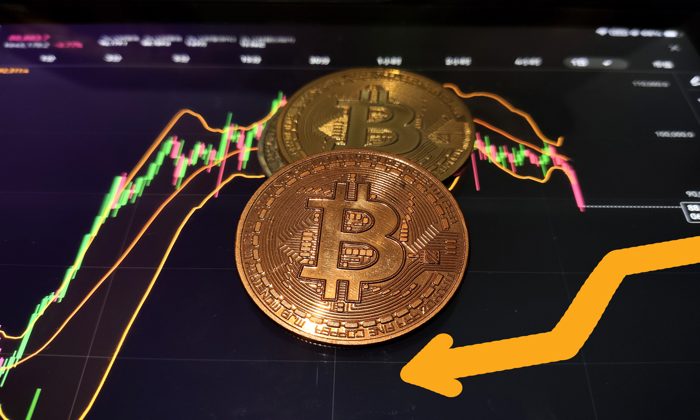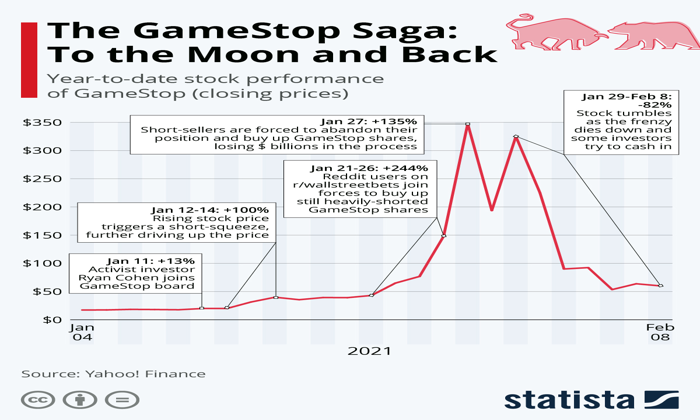The recent Wisconsin Bitcoin ETF sale has captured the attention of investors and crypto enthusiasts alike. In early 2025, the Wisconsin Investment Board strategically liquidated its full $300 million stake in BlackRock’s Bitcoin ETF, just weeks before a wave of U.S. tariffs and a consequential crypto market decline. This bold move, as outlined in an SEC filing, occurred during a period of increasing trade tensions that significantly impacted the cryptocurrency landscape. With Bitcoin’s value plummeting below $75,000, the decision reflects the board’s effort to navigate the unpredictability that arose from sweeping tariffs and the broader economic climate. As BlackRock Bitcoin Trust continues to be a pivotal player in the investment community, understanding the implications of such sales becomes critical for stakeholders in the ever-evolving financial world.
The recent divestiture by Wisconsin’s investment authority from the Bitcoin ETF has stirred conversations among market analysts and financial experts. The sale of the state’s investment in BlackRock’s Bitcoin Trust highlights strategic financial moves amidst fluctuating asset values and escalating trade conflicts. As tariffs from the U.S. government played a crucial role in the downturn of the cryptocurrency market, the Wisconsin Investment Board’s actions serve as a case study for institutional responses to market volatility. The impact of economic policies on digital currencies, including Bitcoin’s rapid depreciation, raises important questions about the future of crypto investments. Observers are left to ponder how such market forces and state-level decisions will shape the future of cryptocurrency portfolios.
The Impact of U.S. Tariffs on the Crypto Market
The recent wave of U.S. tariffs has been a significant catalyst in the turbulence experienced by the cryptocurrency market. Following the imposition of sweeping tariffs by the Trump administration, investors witnessed a dramatic decline in Bitcoin prices, which fell below the key psychological support of $75,000. The fear surrounding escalating trade tensions, particularly with China, prompted liquidity crises across risk assets, including cryptocurrencies. With economic policies favoring protectionist measures, the market reacted negatively, leading to increased volatility in buying and selling activities.
This decline in the crypto market can be closely linked to the overall sentiment of uncertainty that the tariffs have cast over global trade. Crypto investors, typically sensitive to shifts in economic stability, found themselves navigating through a fractious political landscape. Analysts from financial institutions like Goldman Sachs highlighted that such trade policies could inflate core inflation rates, further straining the purchasing power of consumers and, consequently, the demand for cryptocurrencies. The aftermath of these tariffs instigated a comprehensive reevaluation of investment strategies among holders of Bitcoin and other digital assets.
Wisconsin Bitcoin ETF Sale: A Strategic Move
In light of the mounting market pressures caused by the turbulence in international trade, the Wisconsin Investment Board’s decision to sell its stake in BlackRock’s Bitcoin ETF comes across as a calculated maneuver. By liquidating its $300 million investment in the fund during the first quarter of 2025, Wisconsin effectively sidestepped the looming threats posed by the turbulent economic climate resulting from U.S. tariffs. This sale, executed just days before the ‘Liberation Day’ tariffs were set to take effect, showcases the board’s proactive approach to managing their investment portfolio amidst a declining crypto market.
The swift decision to divest from BlackRock’s iShares Bitcoin Trust (IBIT) also underscores the importance of timing in the rapidly shifting landscape of cryptocurrency investments. Given the potential for further volatility stemming from ongoing trade disputes and the regulatory environment shaped by the SEC, the Wisconsin Investment Board’s move to liquidate its holdings at the apex of risk illustrates a keen understanding of risk management strategies in the face of economic uncertainty. Such strategic foresight is essential in preserving investor capital during challenging market conditions, particularly for public funds like SWIB.
Market Response to Wisconsin’s Liquidation of Bitcoin Assets
The market response to the Wisconsin fund’s liquidation of its Bitcoin ETF assets has been one of heightened scrutiny and speculation. Investors and market analysts have closely monitored the transaction as a reflection of broader sentiment regarding the stability of the crypto market amidst significant geopolitical events. The SEC filing revealing the sale just before major tariff implementations triggered discussions about the possible implications on Bitcoin’s long-term value amid uncertain legislative pressures. Such concerns accentuate the interconnectedness of traditional finance with cryptocurrency markets.
Moreover, this pivotal sale has reignited conversations surrounding the regulatory oversight of Bitcoin ETFs, as stakeholders analyze how institutional moves might influence market trends. With the Wisconsin Investment Board’s action coming at a time when many are questioning the sustainability of crypto investments, it sparks a renewed inquiry into the balance between innovation and regulation in the financial sector. The apprehension surrounding institutional withdrawals, such as SWIB’s exit from the BlackRock Bitcoin Trust, has the potential to steer market directions, particularly if similar maneuvers are adopted by other institutional investors during periods of economic instability.
Trade Policies and Their Role in Cryptocurrency Dynamics
Trade policies enacted by the U.S. government have significant ramifications for the cryptocurrency ecosystem. As tariffs escalated, particularly during the Trump administration, the interplay between domestic economic measures and global market stability became increasingly apparent. The abrupt changes in trade policies not only triggered volatility in traditional markets but also reverberated throughout the crypto landscape, demonstrating how interconnected these sectors have become. With many investors viewing cryptocurrency as a hedge against economic downturns, the uncertainty bred by tariffs led to swift reactions, causing drastic price fluctuations.
Cryptocurrency investors are often on the lookout for political changes that could influence market conditions. For instance, the imposition of tariffs on Chinese imports led to fears that such decisions could destabilize not only the cryptocurrency market but also the broader economic fabric. This has prompted investors to pivot quickly, assessing the impacts of geopolitical tensions on their portfolios and adjusting accordingly. As trade policies evolve, understanding their influence on cryptocurrency dynamics becomes crucial for strategizing future investments.
Future Outlook for Bitcoin amid Economic Uncertainty
As the economic landscape continues to shift, the future of Bitcoin and other cryptocurrencies remains uncertain but increasingly intriguing. The experiences of early 2025, including the Wisconsin fund’s withdrawal from BlackRock’s Bitcoin ETF amid tariff fears, foreshadow a critical period for crypto assets. With regulatory attention intensifying—due in part to changing household asset valuations—investors must remain vigilant, navigating the potential for further price volatility attached to policy changes. The influence of U.S. tariffs on market sentiment will play a pivotal role in shaping investor behaviors moving forward.
Experts predict that adaptability will be key to success in navigating these tumultuous waters. The interplay of international relations and domestic economic policies will not only define the Bitcoin landscape but also dictate how traditional and cryptocurrency investors perceive risk. As inflation concerns persist and policy discussions unfold, the need for robust risk management frameworks will be paramount. Consequently, the crypto market may witness a division among investors: those who view Bitcoin as a long-term asset and those who might treat it as a speculative investment based on current events.
The Wisconsin Investment Board’s Strategic Financial Decisions
The strategic decisions made by the Wisconsin Investment Board reveal an insightful approach to asset management, particularly during times of financial upheaval. Their choice to divest from the Bitcoin ETF well before the onset of significant trade policy shifts underscores a commitment to maintaining portfolio stability. During times marked by tariff-induced volatility, swift actions can mitigate risk, protecting governmental funds from unpredictable market declines seen in the cryptocurrency sector.
Moreover, the board’s ability to assess and respond swiftly to market conditions displays a microcosm of how public investment strategies might evolve in a continually changing global economy. With the cryptocurrency market being as reactive as it is—often responding instinctively to geopolitical events—the Wisconsin Investment Board’s liquidation before the implementation of tariffs serves as a prudent case study for other institutional investors considering Bitcoin and its related financial products.
Understanding BlackRock Bitcoin Trust and Its Market Role
BlackRock’s iShares Bitcoin Trust has emerged as a pivotal institution in the landscape of cryptocurrency investment, offering a regulated avenue for institutional investors to gain exposure to Bitcoin. The Wisconsin Investment Board’s significant investment of $300 million highlights the trust’s prominence, even as U.S. tariffs initiated pressures that led to market fluctuations. Understanding the operational mechanics of Bitcoin ETFs, such as the BlackRock Bitcoin Trust, is essential for grasping how these products fit into wider market strategies and investor portfolios.
The trust serves not only to facilitate easier access to Bitcoin but also plays a vital role in shaping perceptions of cryptocurrency legitimacy among institutional investors. As more organizations consider Bitcoin as a viable asset class, the implications of institutional holdings by entities like SWIB contribute to both market stability and volatility. Given the competitive landscape and the effects of external economic policies, BlackRock’s Bitcoin Trust represents a significant touchpoint in assessing crypto market trajectories amidst regulatory developments and geopolitical considerations.
Economic Predictions Post-Tariff Implementation
Post-implementation of U.S. tariffs raises critical questions regarding the trajectory of economic performance, particularly within the realms of cryptocurrency and traditional financial markets. Analysts are particularly concerned about the long-term effects of heightened consumer prices and their knock-on effects on risk assets like Bitcoin. As inflation expectations rise and consumer spending potentially slows, the short- to medium-term predictions for Bitcoin’s market behavior could lean towards bearish. Market participants will need to closely observe inflation trends and tariff impacts as indicators of potential fluctuations in crypto values.
Further complicating this economic landscape are the implications of consumer confidence and its direct relationship with investment patterns. Should inflation and tariffs persist, Bitcoin’s role as a hedge against traditional market uncertainties may become increasingly pronounced. Alternatively, should tariff-related tensions ease, it might pave the way for a recovery phase in the crypto market. This evolving scenario calls for vigilant market analysis and flexible investment strategies that can adapt to both economic forecasts and actual market movements.
Building Resilience: Navigating Cryptocurrency Investments with Caution
As the cryptocurrency market navigates through turbulent economic realities shaped by U.S. tariffs and geopolitical uncertainties, developing strategies for resilience has become essential for investors. The cuts from significant funds like the Wisconsin Investment Board serve as a reminder that caution can often be a prudent approach when confronting potential volatility. Investors are encouraged to adopt diversified strategies that include robust risk management practices, recognizing that markets can shift rapidly in response to external pressures.
Furthermore, building a resilient investment portfolio also requires staying informed about macroeconomic indicators and policy changes that influence both traditional and crypto markets. By keeping abreast of trends arising from trade policies and understanding their implications for cryptocurrencies, investors can better navigate the complexities of today’s financial landscape. Participating actively in discussions, engaging with market analysis, and being prepared to pivot strategies as conditions change are key components in securing long-term viability in cryptocurrency investments.
Frequently Asked Questions
What led to the Wisconsin Bitcoin ETF sale in early 2025?
The Wisconsin Investment Board sold its entire $300 million stake in BlackRock’s Bitcoin ETF amid rising trade tensions between the U.S. and China and the introduction of sweeping U.S. tariffs. This market uncertainty significantly contributed to the decline in the cryptocurrency market, prompting the sale.
How much did the Wisconsin Investment Board sell its Bitcoin ETF stake for?
The Wisconsin Investment Board sold its stake in the BlackRock Bitcoin ETF for approximately $300 million during the first quarter of 2025. The sale occurred just before significant U.S. tariffs took effect, impacting the crypto market.
What impact did U.S. tariffs have on the Wisconsin Bitcoin ETF sale?
The imposition of sweeping U.S. tariffs created significant market instability that affected crypto assets like the BlackRock Bitcoin ETF, leading the Wisconsin Investment Board to liquidate its holdings before the market conditions deteriorated further.
When did the Wisconsin fund liquidate its Bitcoin ETF holdings?
The Wisconsin Investment Board discretely sold its entire stake in BlackRock’s iShares Bitcoin Trust during the first quarter of 2025, specifically ahead of the March 31 filing deadline with the SEC.
What are the implications of the Wisconsin Bitcoin ETF sale on cryptocurrency investments?
The Wisconsin Bitcoin ETF sale reflects broader market sentiment amidst economic uncertainty driven by U.S. tariffs and trade tensions. This action may serve as a cautionary tale for future cryptocurrency investments, suggesting that external economic factors can heavily influence the crypto market.
What was the market reaction to the Wisconsin Bitcoin ETF sale?
Following the Wisconsin Investment Board’s sale of its stake in the BlackRock Bitcoin ETF, the cryptocurrency market experienced a notable decline, with Bitcoin dropping below $75,000 due to heightened fears surrounding trade conflicts and increasing tariffs.
How did the Wisconsin Bitcoin ETF sale align with the changes in U.S. trade policy?
The Wisconsin Bitcoin ETF sale occurred amidst significant changes in U.S. trade policy under the Trump administration, marked by aggressive tariffs on imports. These policies contributed to market volatility, which likely influenced the decision-making process for the Wisconsin Investment Board regarding its ETF holdings.
Is the Wisconsin Bitcoin ETF sale connected to broader market trends in 2025?
Yes, the Wisconsin Bitcoin ETF sale is closely tied to broader market trends in 2025, characterized by trade tensions and steep tariffs that negatively impacted investor confidence and resulted in a downturn in the cryptocurrency market.
| Key Point | Description |
|---|---|
| Sale of Bitcoin ETF Stake | Wisconsin sold its entire $300 million stake in BlackRock’s Bitcoin ETF in early 2025. |
| Reason for Sale | The sale was influenced by rising trade tensions and U.S. tariffs impacting the market. |
| Market Impact | The cryptocurrency market hit significant lows with Bitcoin dropping below $75,000 and Ethereum falling sharply due to fears around trade escalations. |
| Timing of Sale | The cutoff date for the SEC filing was March 31, just days before major tariffs were imposed on April 2, 2025. |
| Tariffs Overview | Under President Trump, tariffs were increased on various goods from Canada, Mexico, and China, leading to heightened market instability. |
Summary
The Wisconsin Bitcoin ETF sale marked a significant strategic decision amid turbulent market conditions. The State of Wisconsin Investment Board’s prompt liquidation of its stake in BlackRock’s Bitcoin ETF highlights the impact of escalating U.S.-China trade tensions and the resulting tariffs on the cryptocurrency market. As these tensions led to a decline in major cryptocurrencies, this sale reflects the caution required in volatile economic times.
The recent Wisconsin Bitcoin ETF sale is generating significant buzz within the investment community and the broader cryptocurrency market. In early 2025, the Wisconsin Investment Board made a strategic move by liquidating its entire $300 million investment in BlackRock’s Bitcoin ETF, just before a wave of U.S. tariffs precipitated a dramatic decline in Bitcoin and other digital assets. This high-stakes sale underscores how geopolitical tensions can directly impact investors’ confidence and market stability. As the U.S. introduced aggressive trade policies, the crypto landscape saw sharp fluctuations, with Bitcoin dropping below $75,000. The implications of this transaction highlight not only the volatility of the crypto market but also the intricate relationships between global trade and digital asset investments.
In a pivotal financial maneuver, the Wisconsin Investment Board recently opted to divest from its Bitcoin Exchange-Traded Fund (ETF), emphasizing the vulnerabilities that can arise in tumultuous market conditions. This board, known for its careful oversight of state investments, fully exited its stake in BlackRock’s Bitcoin Trust just ahead of a period marked by increased tariffs and ensuing economic uncertainty. The actions taken by Wisconsin reflect a broader trend where institutional investors must navigate the shifting landscape of the cryptocurrency sector amidst fluctuating trade relations. With Bitcoin’s value under pressure from external factors, this decision adds to the discourse on the interconnectedness of financial markets and international trade dynamics. Such investment strategies will undoubtedly shape future engagements as stakeholders recalibrate their approaches in the face of potential market risks.















